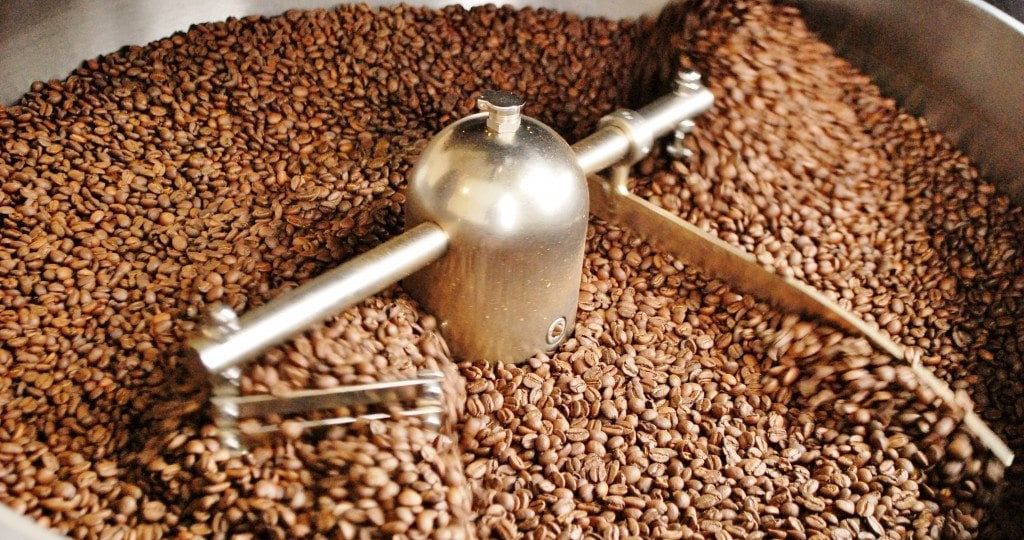
Proper storage of fresh roasted coffee beans is paramount to preserving their flavor and aroma. The moment coffee beans are roasted, they begin to emit carbon dioxide and gradually lose their freshness, which directly impacts their taste. The preservation of these qualities is essential for any coffee enthusiast looking to enjoy the fullest, richest coffee experience.
Optimal storage solutions significantly slow down the degradation process, ensuring that each cup of coffee brewed from these beans retains its unique characteristics and flavor profile.
Why Freshness Matters
Freshness is the cornerstone of a superior coffee experience. Freshly roasted coffee beans contain natural oils and compounds that contribute to their aroma and flavor. Over time, these oils can degrade or become rancid if the beans are not stored properly, leading to a stale taste.
The freshness of coffee beans is directly linked to their flavor; the fresher the beans, the more vibrant and complex the coffee’s taste.
Enemies of Fresh Coffee
The four main adversaries of fresh coffee are air, moisture, light, and heat. Exposure to air can lead to oxidation, which deteriorates the coffee beans’ natural flavors. Moisture can cause mold growth and further degrade the quality of the beans. Light, particularly direct sunlight, can lead to the loss of essential oils, diminishing the beans’ aroma and flavor.
Lastly, excessive heat can accelerate the staling process by causing the beans to sweat out their oils. Understanding and combating these factors are crucial for extending the shelf life of roasted coffee beans and maintaining their quality.
Airtight Containers
Airtight containers offer the best defense against the primary enemies of coffee freshness: air, moisture, and contaminants. By sealing the beans in an environment free from external air, these containers significantly slow down the oxidation process, preserving the coffee’s natural flavors and aromas for a longer period.
The reduction of air circulation also minimizes the risk of moisture buildup, which can lead to mold growth and further degrade the coffee beans.
Opaque vs. Transparent Containers
When it comes to selecting between opaque and transparent containers, the choice should always lean towards the opaque. Light exposure, especially direct sunlight, can have a detrimental effect on the quality of coffee beans, leading to the degradation of essential oils that are critical for flavor and aroma.
Opaque containers protect the beans from light, ensuring that the coffee maintains its original taste and freshness.
Vacuum-Sealed Containers
Vacuum-sealed containers offer a unique solution by removing air from the storage environment, further limiting the oxidation process. However, they come with their own set of considerations. On the plus side, they can significantly extend the freshness of coffee beans.
On the downside, they are typically more expensive than standard airtight containers and may require additional equipment to maintain the vacuum seal over time.
Ideal Storage Conditions
To maximize the shelf life and preserve the quality of coffee beans, it is imperative to store them in cool, dark, and dry places. These conditions help protect the beans from temperature fluctuations and humidity, which can accelerate the staling process. Avoiding heat sources and direct sunlight is crucial, as these can cause the beans to lose their flavor more quickly.
How to Use Retail Packaging for Storage
Many high-quality coffee beans come in specially designed bags that are already equipped to preserve freshness, often featuring a one-way valve that allows gases to escape without letting air in. Utilizing these bags for storage can be a practical choice.
Ensure the bag is tightly sealed after each use, or transfer the beans to an airtight container if the original packaging cannot be resealed effectively.
Alternative Storage Options
For those seeking alternatives to retail packaging, mason jars, airtight coffee canisters, and valved bags are excellent options. Mason jars and airtight canisters offer a robust seal against air and moisture, though it’s important to store them in a cupboard or pantry to avoid light exposure.
Valved bags, designed specifically for coffee storage, allow carbon dioxide to escape while preventing air and moisture from entering, making them a convenient choice for maintaining freshness.
Freezing Coffee Beans: Yes or No?
The debate on freezing coffee beans has varied opinions, but under the right conditions, freezing can be an effective way to extend their freshness. It’s crucial to store them in airtight, opaque containers or vacuum-sealed bags to prevent moisture absorption.
Freeze in small batches to avoid repeated thawing and refreezing, which can introduce moisture and lead to flavor loss. Use frozen beans within a month to ensure quality.
Keeping Beans Fresh Longer
To extend the freshness of coffee beans beyond their typical shelf life, consider investing in high-quality storage solutions that protect against air, moisture, light, and heat. Regularly check the storage environment to ensure it remains cool, dark, and dry. Purchase beans in smaller quantities to use them within their peak freshness period, typically within a month of roasting.
FAQs
- How long do roasted coffee beans last? Properly stored, roasted coffee beans can maintain their freshness for about a month. However, they can last longer if stored under optimal conditions, such as in airtight containers away from light and heat.
- Is it possible for coffee beans to go bad? Yes, coffee beans can go bad or become stale if exposed to air, moisture, light, or heat, which can accelerate the loss of flavor and aroma.
- Can you freeze coffee beans? Yes, coffee beans can be frozen to extend their freshness. It’s important to store them properly in airtight containers or vacuum-sealed bags to prevent moisture from affecting the beans.
Conclusion
Proper storage is essential for maintaining the flavor and freshness of coffee beans. Utilizing airtight, opaque containers, avoiding exposure to light, heat, and moisture, and considering the option of freezing under the right conditions can significantly prolong the life of your coffee.
By adhering to these best practices, coffee enthusiasts can ensure that each cup they brew captures the rich, full-bodied flavor of freshly roasted beans.









